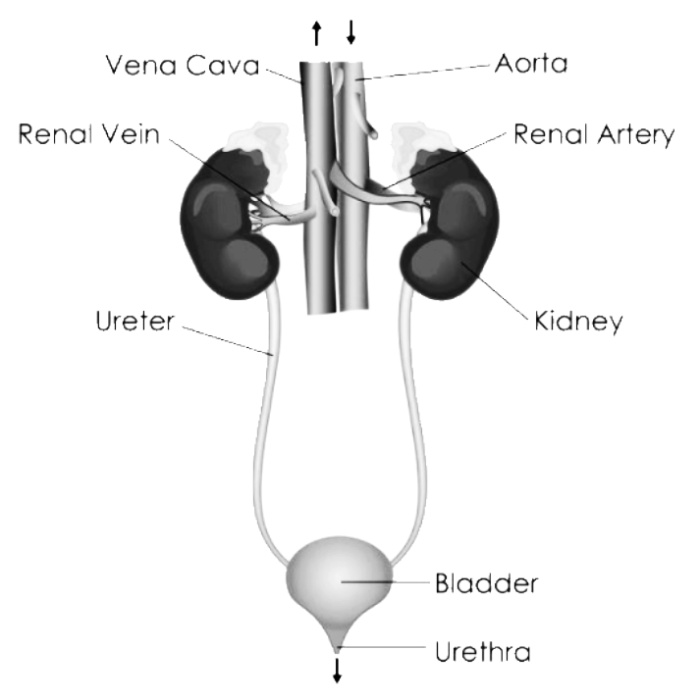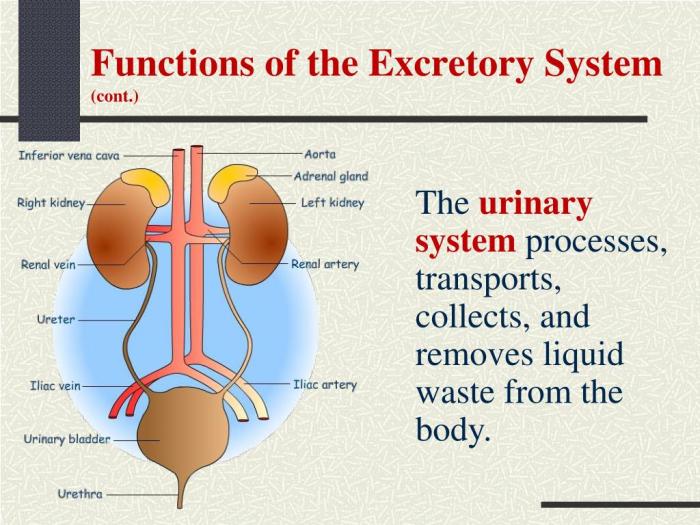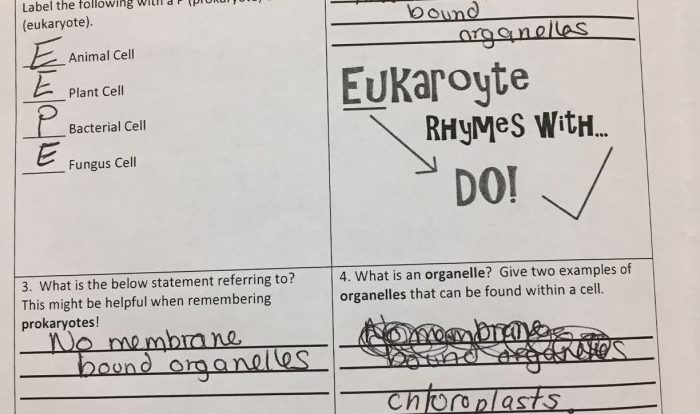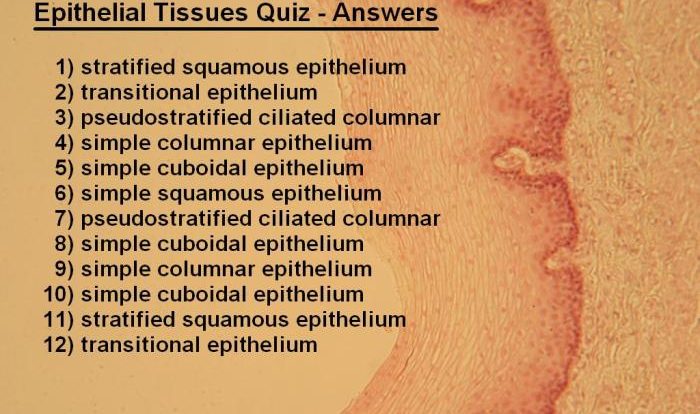Step into the fascinating realm of the excretory system, where the body’s intricate waste removal mechanisms are meticulously explored. With the excretory system webquest answer key as our guide, we embark on a journey of discovery, unraveling the mysteries of this essential biological process.
From the kidneys’ pivotal role in filtration to the skin’s involvement in waste elimination, this webquest answer key provides a comprehensive understanding of the excretory system’s structure, function, and potential disorders. Prepare to immerse yourself in a wealth of knowledge, gaining invaluable insights into the body’s remarkable ability to maintain homeostasis and ensure optimal health.
Excretory System Overview

The excretory system is responsible for removing waste products from the body, maintaining fluid balance, and regulating blood pressure. It consists of the kidneys, ureters, urinary bladder, and urethra.

The kidneys are the primary organs of the excretory system. They filter waste products from the blood and produce urine, which is then transported to the bladder through the ureters.
Structure and Function of the Kidneys

Anatomical Structure of the Kidneys
The kidneys are located on either side of the spine, just below the rib cage. They are bean-shaped and about the size of a fist. Each kidney has an outer cortex and an inner medulla.
The cortex contains the glomeruli, which are tiny filters that remove waste products from the blood. The medulla contains the renal tubules, which reabsorb water and other essential substances from the filtrate.
Glomerular Filtration
Glomerular filtration is the process by which waste products are removed from the blood. It occurs in the glomeruli, which are tiny filters located in the cortex of the kidneys.
Blood enters the glomeruli and is filtered through the capillary walls. The filtrate contains waste products, water, and other small molecules.
Reabsorption and Secretion
The filtrate then enters the renal tubules, where reabsorption and secretion occur. Reabsorption is the process by which water and other essential substances are reabsorbed from the filtrate back into the blood.
Secretion is the process by which certain substances, such as hydrogen ions and potassium ions, are secreted from the blood into the filtrate.
Urine Formation and Composition
Steps Involved in Urine Formation
Urine formation involves three main steps:
- Glomerular filtration:Waste products are removed from the blood in the glomeruli.
- Reabsorption:Water and other essential substances are reabsorbed from the filtrate in the renal tubules.
- Secretion:Certain substances are secreted from the blood into the filtrate in the renal tubules.
Composition of Urine
Urine is composed of water, waste products, and other substances. The major waste products in urine are urea, creatinine, and uric acid.
Urine also contains electrolytes, such as sodium, potassium, and chloride. The concentration of these electrolytes in urine can vary depending on the body’s fluid balance.
Factors Influencing Urine Output and Composition
The output and composition of urine can be influenced by a number of factors, including:
- Fluid intake:Increased fluid intake leads to increased urine output.
- Diet:Certain foods, such as asparagus and coffee, can increase urine output.
- Medications:Some medications, such as diuretics, can increase urine output.
- Hormones:Hormones, such as antidiuretic hormone (ADH), can affect urine output and composition.
Other Organs Involved in Excretion
Liver
The liver is involved in detoxification and waste removal. It breaks down toxins and converts them into less harmful substances that can be excreted in the urine or feces.
Lungs
The lungs excrete carbon dioxide, a waste product of cellular respiration. Carbon dioxide is transported in the blood to the lungs, where it is exhaled.
Skin
The skin excretes waste products through sweating. Sweat contains water, electrolytes, and other waste products.
Disorders of the Excretory System
Kidney Stones, Excretory system webquest answer key
Kidney stones are hard deposits that form in the kidneys. They can cause pain, nausea, and vomiting.
Urinary Tract Infections
Urinary tract infections (UTIs) are infections of the urinary tract, including the bladder, ureters, and kidneys. They can be caused by bacteria, viruses, or fungi.
Kidney Failure
Kidney failure is a condition in which the kidneys are unable to function properly. It can be caused by a variety of factors, including diabetes, high blood pressure, and autoimmune diseases.
FAQ Corner: Excretory System Webquest Answer Key
What is the primary function of the excretory system?
The primary function of the excretory system is to eliminate waste products from the body, thereby maintaining the body’s internal environment and ensuring optimal health.
What is the role of the kidneys in the excretory process?
The kidneys play a crucial role in the excretory process by filtering waste products from the blood, producing urine, and regulating blood pressure.
What are the common disorders of the excretory system?
Common disorders of the excretory system include kidney stones, urinary tract infections, and kidney failure.

